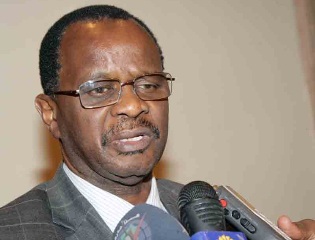Washington pledges to support peace implementation in Darfur, Sissi
November 24, 2011 (KHARTOUM) — Washington has promised to support politically and economically the implementation of Doha Document for Peace in Darfur (DDPD), said the head of Darfur Regional Authority (DRA) and leader of the former rebel Liberation and Justice Movement (LJM).

The workshop was also attended by rebels from Justice and Equality Movement (JEM), the other participant in the Doha process, and Sudan Liberation Movement led by Minni Minnawi (SLM-MM) who signed a peace agreement with Khartoum in 2006 before to rebel again.
LJM leader told reporters in Khartoum on Wednesday that Washington reiterated its support to the peace deal he sealed with Khartoum on 14 July. He also said the American officials promised to support the DRA to ensure the full implementation of the peace document and back the resettlement of displaced people and refugees and development.
The two-day workshop allowed the signatories and the non-signatories of the Doha document from the rebel groups to detail their positions on how to realise peace in Darfur and their criticisms to the Doha framework text.
Sissi told the press there was no recommendations at the end of the workshop. He further said that there was no trend to launch a new initiative for peace in Darfur and stressed that the non-signatory rebels can join the DDPD without specific time frame.
The head of UN peacekeeping department, Hervé Ladsous told the Security Council on 25 October that they are working on a new road map for peace in Darfur in collaboration with the African Union which shows strong support to the DDPD.
“Provision will be made for the outcomes of the 16 and 17 November workshop in Washington to be reflected in the road map,” the French diplomat told the Council.
In a statement released on 19 October after a retreat held in El-Geneina, the international stakeholders admitted the need to include other rebel groups to the negotiating table and to support the return of IDPs and refugees.
“They agreed that the roadmap should adopt a three-pronged approach: i) support the implementation of the DDPD; ii) sustained engagement with the hold-out movements; and iii) support, in principle, an early internal dialogue among the people of Darfur on the peace,” said the final communiqué of the fourth retreat.
JEM and SLM-MM delegates denounced during the workshop Khartoum’s lack of seriousness, saying the solution of Darfur crisis goes beyond the regional framework. The rebels who formed a new alliance with the SPLM-N pleaded for a comprehensive solution for Darfur, Blue Nile and South Sudan conflicts.
The two groups, according to statements released after the workshop, met with the head of UN peacekeeping department, and US Assistant Secretary of State for African Affairs Johnnie Carson, to defend their call for one peace process for the three region.
Kauda alliance delegation led by Minni Minnawi also criticized in a meeting with Ladsous, the UNAMID inability for rapid intervention. They also described the reports of the joint operation as “inaccurate and sometimes do not reflect the reality on the ground.”
The delegation also stressed the need to separate between the functions of peacekeeping operations and the mediation for peace in Darfur.
Since last July, Ibrahim Gambari is appointed Joint Chief Mediator ad Interim besides his function as head of the hybrid peacekeeping mission. The former chief mediator Djibril Bassole is called by his country to lead its diplomacy after more than two years spent in Doha to conduct the Darfur peace process.
(ST)
